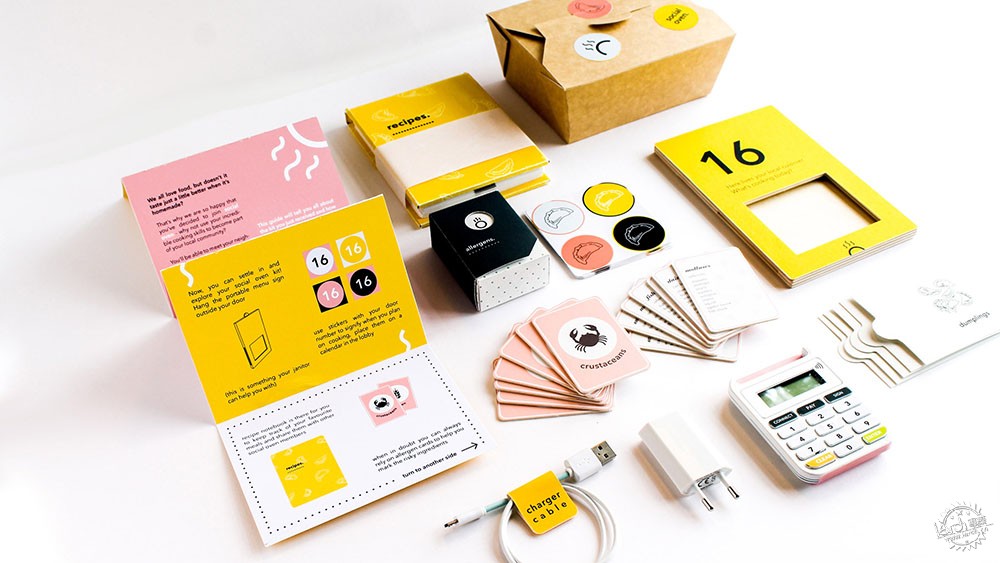
为老年妇女社交而设计的订餐套餐
Subscription cookery kit is designed to help elderly women socialise
由专筑网王帅,李韧编译
中央圣马丁学院(Central Saint Martins)的毕业生Magda Sabatowska设计了一套烹饪用具,用以帮助在波兰居住的老年妇女的生活以及社交。
该工具名为“Social Oven”,主要面向常年独居的老年人,用于邻居交换自制食物。
这套工具是一项订制服务,邻里居民都可以订购。居民们可以用钱买或者做一些工作来支付伙食,比如为老年居民买些食品杂货,或者为他们的房子修理东西。
产品设计专业毕业生Sabatowska认为,通过这一交流,女性可以从此类社交活动中受益,也能够更容易地融入社区。
Central Saint Martins' graduate Magda Sabatowska has devised a cooking kit to help isolated elderly female residents of housing estates in Poland socialise with their neighbours.
Called Social Oven, the kit provides the elderly residents, who are often isolated in their homes, with the tools needed to exchange homemade meals with their neighbours.
The kit is paid for as a subscription service that both the neighbours and the elderly residents can subscribe to. Neighbours can pay for their meals with money or by doing tasks such as doing some grocery shopping for the elderly resident or fixing things around their house.
Through this exchange, BA Product Design graduate Sabatowska believes that the women can benefit from frequent social interactions, and will be able to integrate themselves more easily into the community.
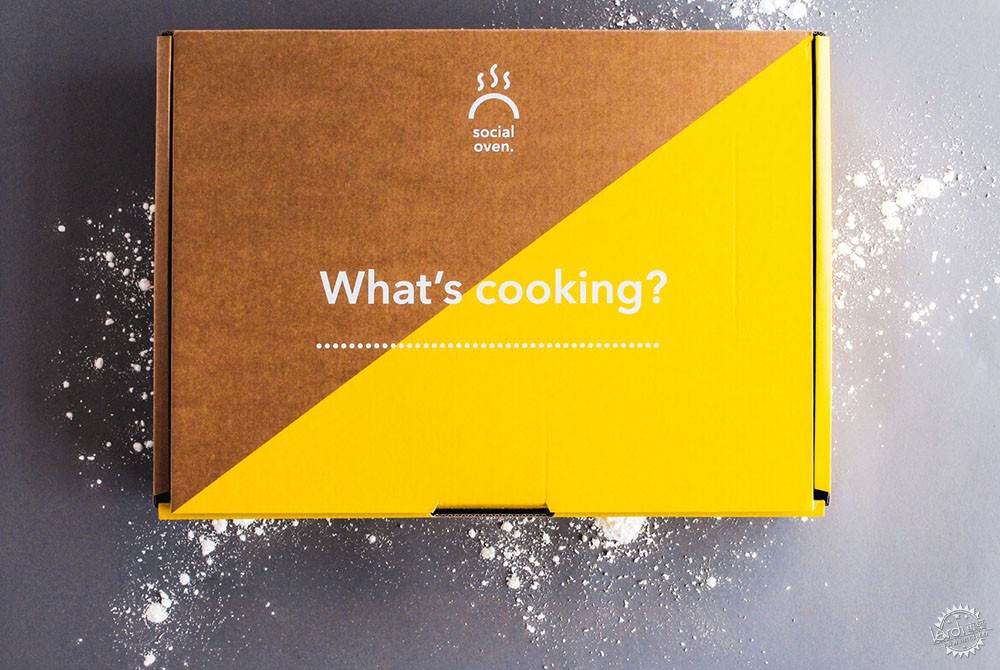
该工具包被包装在一个纸板箱内,里面的欢迎包解释了健康与安全程序,以及如何打开和使用工具包。
里面还包括过敏原卡、食谱笔记本和菜单标志,还有一个挂在家门口的菜单标志,用以通知邻居当天的饮食和活动。
除此之外还有打包盒、包装食品的贴纸、非接触式卡片机和收款充电器。
The kit is packaged in a cardboard box and includes a welcome pack explaining health and safety procedures as well as how to unpack and use the kit.
It also includes allergen cards, a recipe notebook, and a menu sign to hang on the door of their home notifying the neighbours of the meals and activities happening that day.
Subscribers are provided with take away boxes and stickers for packaging the food as well as a contactless card machine and charger for taking payments.
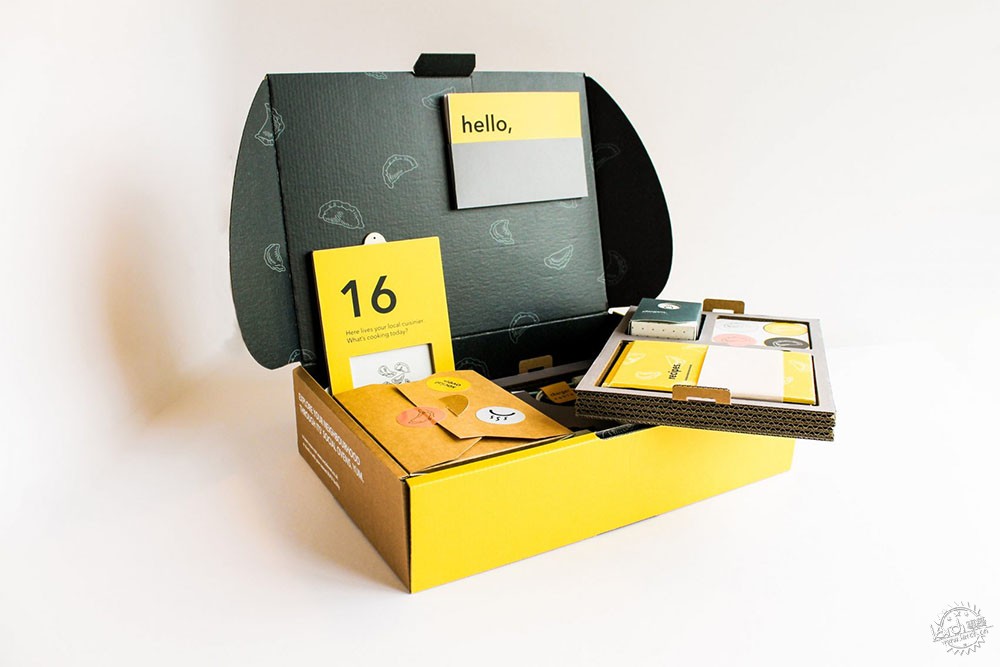
包装外表色彩为黄色、粉色、黑色和白色,同时表面还绘有熟悉的食物图案和纹理,这些有助于协助用户建立并鼓励他们与邻居的互动。
购买订阅后,邻居会得到一张社交烘焙卡,向他们提供同等的金钱津贴和居民补助,这样他们就可以支付就餐费用。
在波兰长大的Sabatowska说,该项目是对波兰传统致敬,在波兰,老年妇女通常负责为家人做饭。
Sabatowska对Dezeen的记者说:“我们应重新思考健康老龄化,我觉得设计对于大环境而言至关重要,因此,这套为波兰住宅区的老年妇女设计的工具并非偶然,它受到社会和经济等多方面的支持。”
Sabatowska继续说:“我特别感兴趣的是,当子女不再与年迈的父母一起居住,或没时间看望他们时,会发生什么。很多女人都遭受着抑郁的困扰,她们生命的最后几年缺乏目标,缺乏存在感。”
The packaging, which uses a colour palette of yellow, pink, black and white, features familiar food motifs and pleasant textures to assist the user in setting up and encourage them to navigate the neighbourhood.
After purchasing a subscription, neighbours are given a Social Oven card that provides them with an equal allowance of money and neighbourly favours, so they can decide how they’re going to pay for their meal on any given day.
Sabatowska, who grew up in Poland, said that her project responds to the Polish traditions that she grew up around, where elderly women were, and she says generally still are, in charge of preparing meals for their families.
"The brief was to reimagine healthy ageing," Sabatowska told Dezeen. "I felt it was important to design for a reality I was already immersed in, and so designing specifically for elderly women in Polish housing estates was a conscious choice, supported by a variety of social and economic aspects."
"I was particularly interested in what happens when families no longer live with their elderly relatives or have the time to visit," continued Sabatowska. "A lot of the women I spoke to suffer from depression and lack purpose in the final years of their lives, as they don’t have anyone to care for anymore."
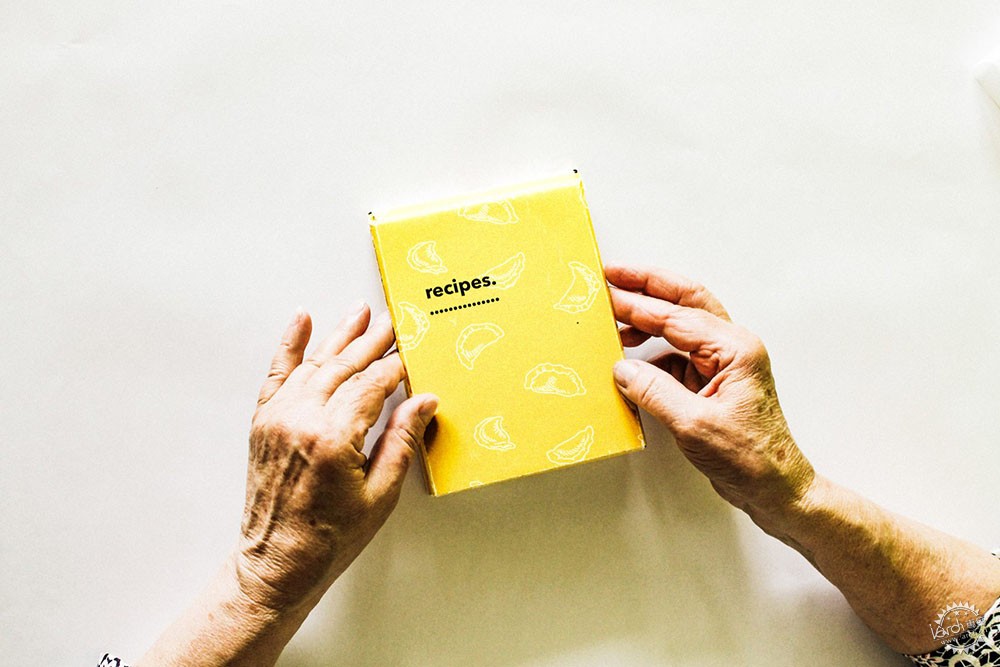
Sabatowska把项目的重点放在了居民住宅,因为这里最缺乏住房部门的服务,而且居住在此的老年人比例最高。
Sabatowska在与当地人的交谈中发现,“5至10年前”邻居之间曾经热情好客的感觉现在已荡然无存。
Sabatowska说:“我很幸运,在波兰试用了这套工具。”
Sabatowska focused the project on housing estates as she said that they are the most under-served housing sector yet have the largest percentage of elderly living in them.
Through conversations and interviews with locals, Sabatowska found out that the sense of hospitality that used to exist among neighbours "five to 10 years ago", is now practically gone.
"I was lucky enough to have trialled the kit in Poland, on a small scale," Sabatowska said.
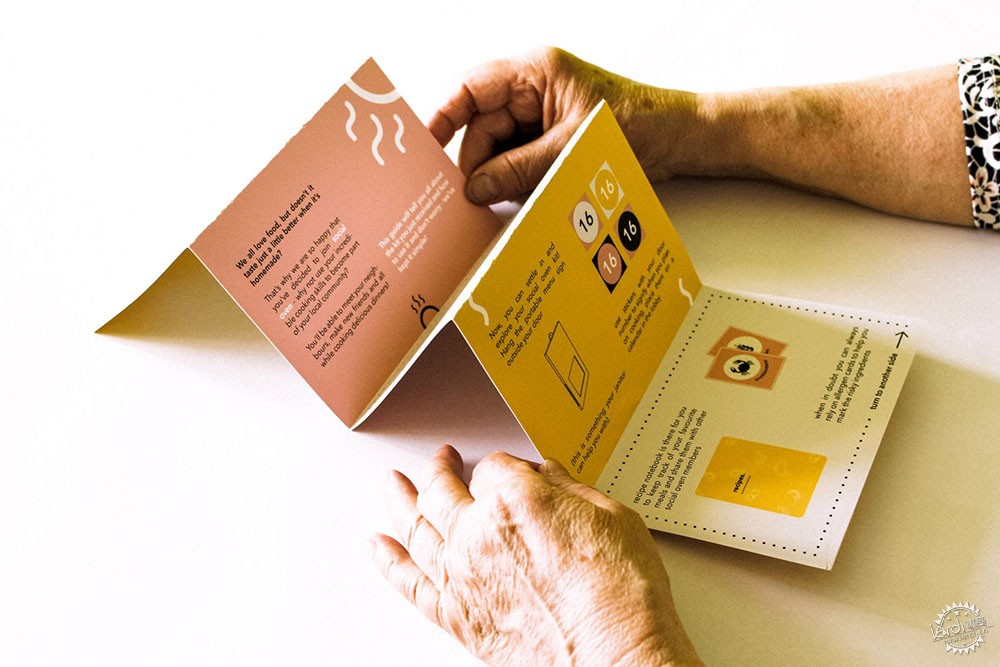
“能够目睹我采访过的女士们使用这套工具,我感到弥足珍贵。我们做了几次成功的套餐交换,这促进了邻里关系,让每个人都感到温暖。”
她继续说:“至于未来的一切都掌握在我的客户手中,我希望能够适当地改进这套工具,让它在不同的情况下发挥作用,希望我能有机会和他们一起做到这一点。”
去年,伦敦设计博物馆(London's Design Museum)委托了6个项目来解决人口老龄化问题,其中包含有可用作手推车的滑板车、机器人同伴和用于沟通的花园房间。
摄影:Magda Sabatowska
"Being able to actually see the ladies I've interviewed interacting with the final models was priceless. We have done a couple of successful meal-favour exchanges and definitely stimulated the neighbourhood, feeding everyone dumplings."
"As for the future, it's all in the hands of my client now, I'd love to be able to evolve it properly and see it work in various scenarios and hopefully I'll get a chance to do that with them," she continued.
Last year London's Design Museum commissioned six projects to tackle the challenges of ageing populations. The resulting products included a scooter that doubles as a trolley bag, an intuitive robot companion and a garden room dedicated to conversation.
Photography is by Magda Sabatowska.
|
|
